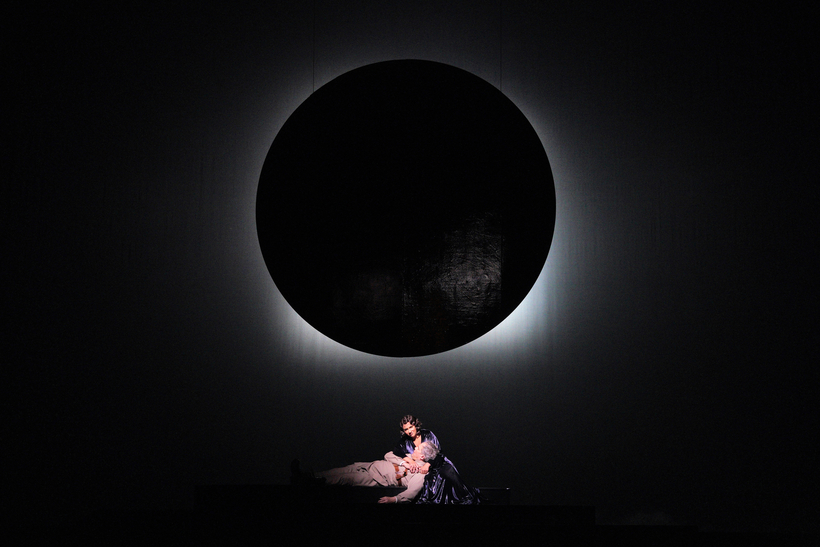O brave new world! Tonight, the San Francisco Opera opens the new season with Antony and Cleopatra, after Shakespeare, the latest in the company’s string of world premieres by John Adams. And on September 18, through the miracle of live streaming, all of us can share in the excitement.
Adams is not the only American composer to have heard the music in this play. Samuel Barber (1910–1981), best remembered for his soulful Adagio for Strings, was there before. And when the new Metropolitan Opera House threw open its doors at Lincoln Center on September 16, 1966, radio audiences could listen in on the first-ever performance of his luxuriant score in real time. Leontyne Price and Justino Díaz starred, flying the flags of diversity and representation long before those buzzwords were a thing.
No doubt wisely, Adams has kept himself ignorant of Barber’s opera. Like Barber, though, he sticks with Shakespeare’s English. That’s a bolder choice than it may appear.
Historically, libretti for most “Shakespeare operas” have been adaptations—some freer, some less so—in the language of a Verdi, a Gounod, or some other Continental dramatist in music. The Tempest of Thomas Adès opted not for Shakespeare but for inexcusable English paraphrase (read “doggerel”) by Meredith Oakes.
Lately, Brett Dean has made waves with his Hamlet, set to bits and pieces of authentic Shakespeare stuck together pretty much at random, like a collage of confetti. But so far, only one reasonably faithful operatic rendering of a Shakespeare play in Shakespeare’s English has gained a niche in the canon: Benjamin Britten’s A Midsummer Night’s Dream. Will Adams beat the odds?

Here’s one good omen. For many, the peak moment of Adams’s monumental Doctor Atomic was the setting of a sacred sonnet by Shakespeare’s “metaphysical” contemporary John Donne, sung by the opera’s physicist hero J. Robert Oppenheimer. So Adams may well have an ear for the supercharged Elizabethan idiom. Fragments from Macbeth in Adams’s more recent, discombobulated frontier history Girls of the Golden West are inconclusive.
But here’s another good omen. The Canadian baritone Gerald Finley, Adams’s original Oppenheimer, returns now as Antony, Shakespeare’s grizzled Roman general undone by love. A probing interpreter of poetry and a suave musician, Finley also cuts a figure of rugged dignity that should serve the character well. The 24-karat American soprano Julia Bullock, lustrous in Girls of the Golden West, was announced as Cleopatra but withdrew when pregnancy supervened. Enter Amina Edris, born in Egypt, raised in New Zealand, and an alumna of San Francisco Opera’s blue-ribbon Merola Opera Program, who has lately been racking up glowing credits abroad.
The tenor Paul Appleby, another Adams stalwart, appears as Octavius Caesar, the new man whose fortunes rise as the lovers’ fortunes fall. The bass-baritone Alfred Walker sings Antony’s aide-de-camp Enobarbus. It’s through Enobarbus’s eyes that we see Antony’s first glimpse of Cleopatra floating in state down the river Nile. And in a play of rapturous death scenes, Enobarbus’s leave-taking by moonlight strikes a note of unique pathos. Though his role is not decisive in the action, his sensibility weaves deep into the music of the poetry, a fact a composer of Adams’s gifts cannot have missed.
Antony and Cleopatra streams live on the San Francisco Opera Web site on September 18 and remains available for 48 hours
Matthew Gurewitsch writes about opera and classical music for AIR MAIL. He lives in Hawaii

